Kuvaus
Federation Campesina del CAUCA – FCC
Cajibio, Ucumari farm, Colombia
Lajikkeet: Castillo, Solombis, Typica, Caturra
Kasvukorkeus: 1700 – 1900 m
Washed
100% arabica
Organic certified
CAUCAN asukkaiden elämänolojen parantaminen luomukahvia viljelemällä sekä antamalla uusille sukupolville mahdollisuuden parempaan elämään ja olemaan ylpeitä maaseudusta ja omasta perimästään.
Federacion de Campesinos del Caucassa kahvi ei ole vain poikkeuksellinen juoma, vaan myös rauhan ja väkivallan sekä laittomien viljelykasvien vastarinnan symboli. Tätä luomukahvia viljellään toivon ja päättäväisyyden ilmapiirissä, jossa sodan ja laittomien viljelykasvien kieltäminen on periaatteellinen kannanotto.
Rauhan puolesta taistelevat tilat ovat valinneet Caturra-, Colombia-, Typica- ja Castillo-lajikkeet pääasiassa siksi, että ne menestyvät sopusoinnussa luonnon kanssa, sopeutuvat alueeseen, kehittyvät erinomaisesti optimaalisissa olosuhteissa .
Yhdistyksellä, jolla on yli 53 vuotta historiaa, oli alussa syndikaattina, jonka tavoitteena oli palauttaa maata viljelykasveille. Monet sen perustajista olivat hallituksen väkivallan uhreja, mikä johti ryhmän kehittymiseen kahvin yhdistämäksi federaatioksi. Siitä lähtien he ovat toimineet laillisena vaihtoehtona konflikteille ja huumekaupalle edistäen kahvinviljelyä ja kannustaen nuorempia sukupolvia olemaan ylpeitä campesino-perinnöstään sen sijaan, että he pyrkisivät muuttamaan kaupunkeihin.
Heidän päätavoitteensa ovat:
- Vuodesta 2014 lähtien he ovat lopettaneet torjunta-aineiden käytön ja siirtyvät luomu-/uudistavaan viljelyyn. Monet heistä ovat jo sertifioituja, ja he tuottavat nyt omat tuotantopanoksensa biotehtaassa, joka toimittaa myös muille viljelijöille, jotka viljelevät kasveja, kuten mansikoita, luloa ja perunoita.
- Yhdistys on itsenäinen ja sillä on vahva vaikutus yhteisöihinsä.
- He suojelevat kotoperäisiä siemeniä, edistävät biologista monimuotoisuutta ja välttävät monokulttuureja, mikä myös mahdollistaa kahvinviljelijöiden omavaraisuuden elintarviketuotannossaan.
- Vaikka kahvi on edelleen heidän ensisijainen painopisteensä, he monipuolistavat tuotantoaan tuottamalla hunajaa jäsentensä tiloille asennetuilla mehiläispesillä.
- Vastoin kansallisista suosituksia, kaikki yhdistyneet viljelijät viljelevät kahvia lehvästöissä, muiden kasvien varjossa.
- Vuodesta 2021 lähtien he ovat työskennelleet EUDR-vaatimustenmukaisuuden saavuttamiseksi. Koetilastaan he käsittelevät mikroeriä käyttämällä itse istuttamiaan mikro-organismeja, mikä varmistaa aidot maut ja välttää vieraiden hiivojen aiheuttaman saastumisen.
- He näkevät suhteensa kumppanuuksina, eivät asiakaslähtöisinä.
- He työskentelevät aktiivisesti lieventääkseen ilmastonmuutoksen aiheuttamia riskejä viljelijöille.
- Yli kolmanneksen heidän tuotannostaan hoitavat naiset, jotka pystyvät kahvinviljelyn turvin elämään itsenäiseesti, sillä monet ovat leskiä konfliktin vuoksi.
Improving the living conditions of the residents of CAUCA by cultivating organic coffee and giving new generations the opportunity to live a better life and be proud of the countryside and their own heritage.
In the Federacion de Campesinos del Cauca, coffee is not only an exceptional beverage, but also a symbol of peace and resistance against violence and illicit crops. This specialty coffee is grown in an atmosphere of hope and determination, where saying ”no” to war and illicit crops is a statement of principle.
The farms, rooted in a history of struggle for peace, have chosen to produce the Caturra, Colombia, Typica and Castillo varieties, mainly because of their ability to thrive in harmony with nature, adaptability to the area, their excellent development in optimal conditions.
The association, with over 53 years of history, began as a syndicate aiming to return land to the campesinos. Many of its founders were victims of violence by the government, which led the group to evolve into a Federation, united by coffee.
Since then, they have served as a legal alternative to conflict and drug trafficking, promoting coffee cultivation while encouraging younger generations to be proud of their campesino heritage rather than seeking migration to cities.
Their main mission goals are:
- Since 2014, they have stopped using pesticides and are transitioning to organic/regenerative farming. Many are already certified, and they now produce their own inputs in a biofactory, which also supplies other farmers growing crops like strawberries, lulo, and potatoes.
- The association is autonomous and has a strong impact on its communities.
- They are guardians of endemic seeds, promoting biodiversity and avoiding monocultures, which also allows coffee farmers to be self-sufficient in their food production.
- Although coffee remains their primary focus, they are diversifying by producing honey with hives installed on their members’ farms.
- Contrary to national recommendations, all associated farmers grow coffee under shade.
- Since 2021, they have been working towards EUDR compliance.
- At their experimental farm, they process microlots using microorganisms they have inoculated themselves, ensuring true flavors and avoiding contamination from foreign yeasts.
- They see their relationships as partnerships, not client-based.
- They are actively working to mitigate climate change risks for farmers.
- More than a third of their production is handled by women, who are able to live independently through coffee farming, as many are widowed due to the conflict.
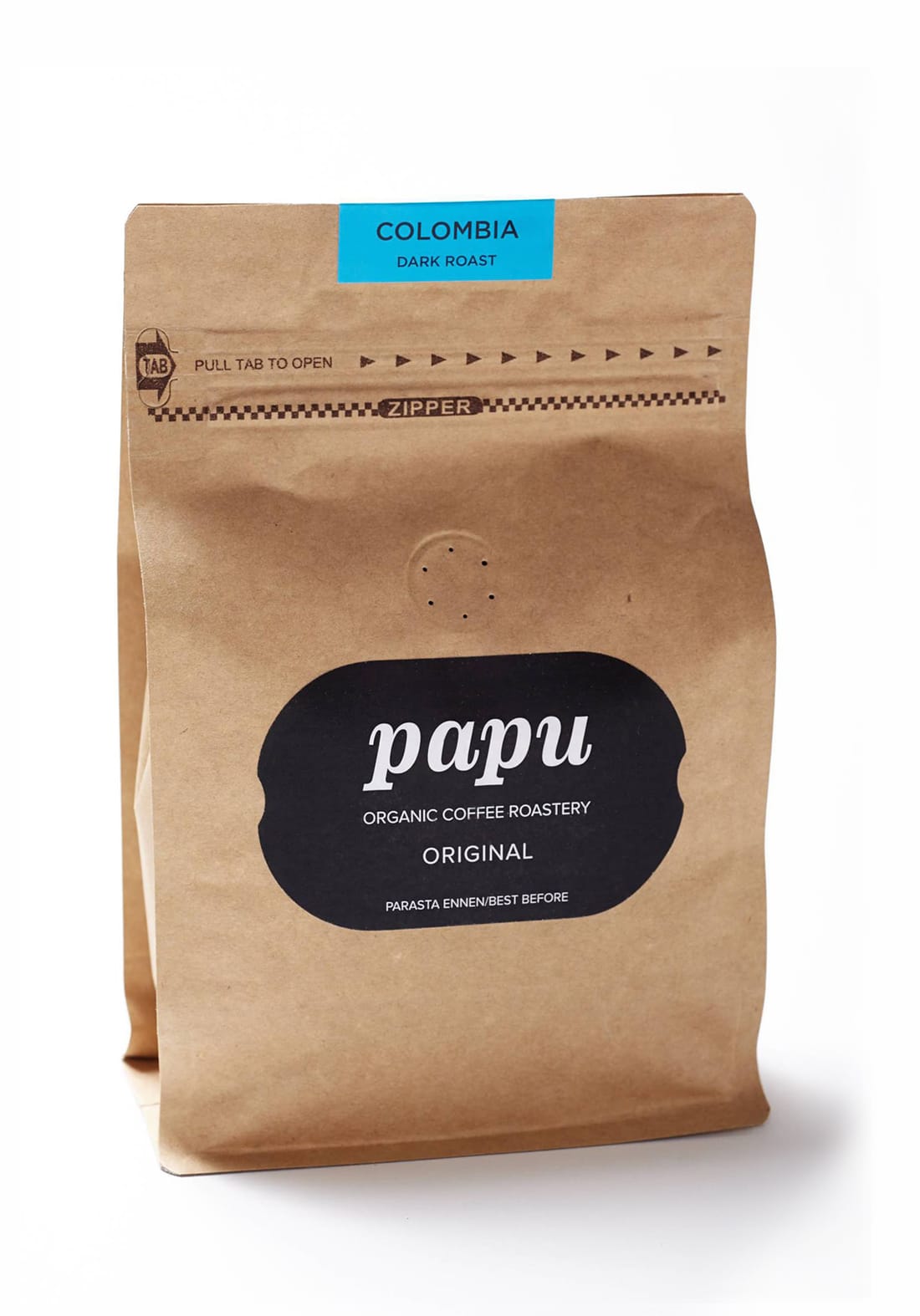
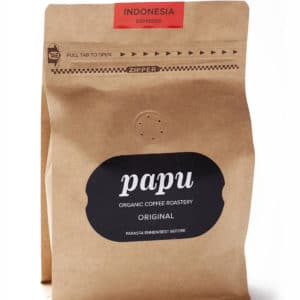
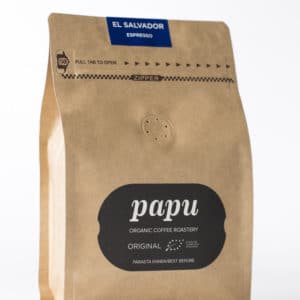
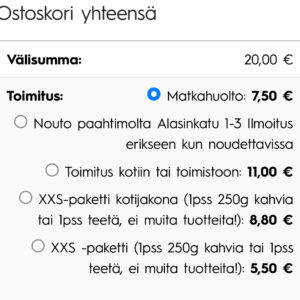
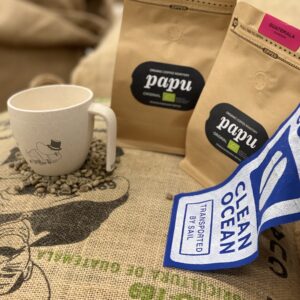
Arviot
Tuotearvioita ei vielä ole.